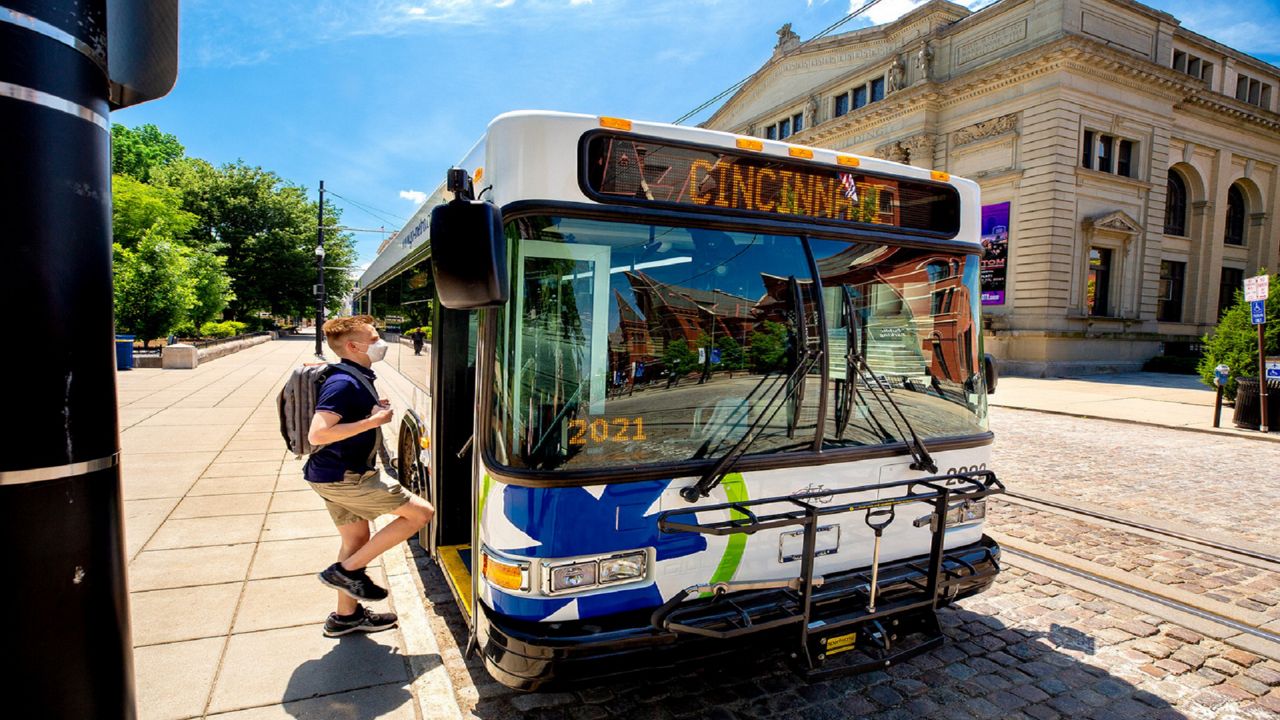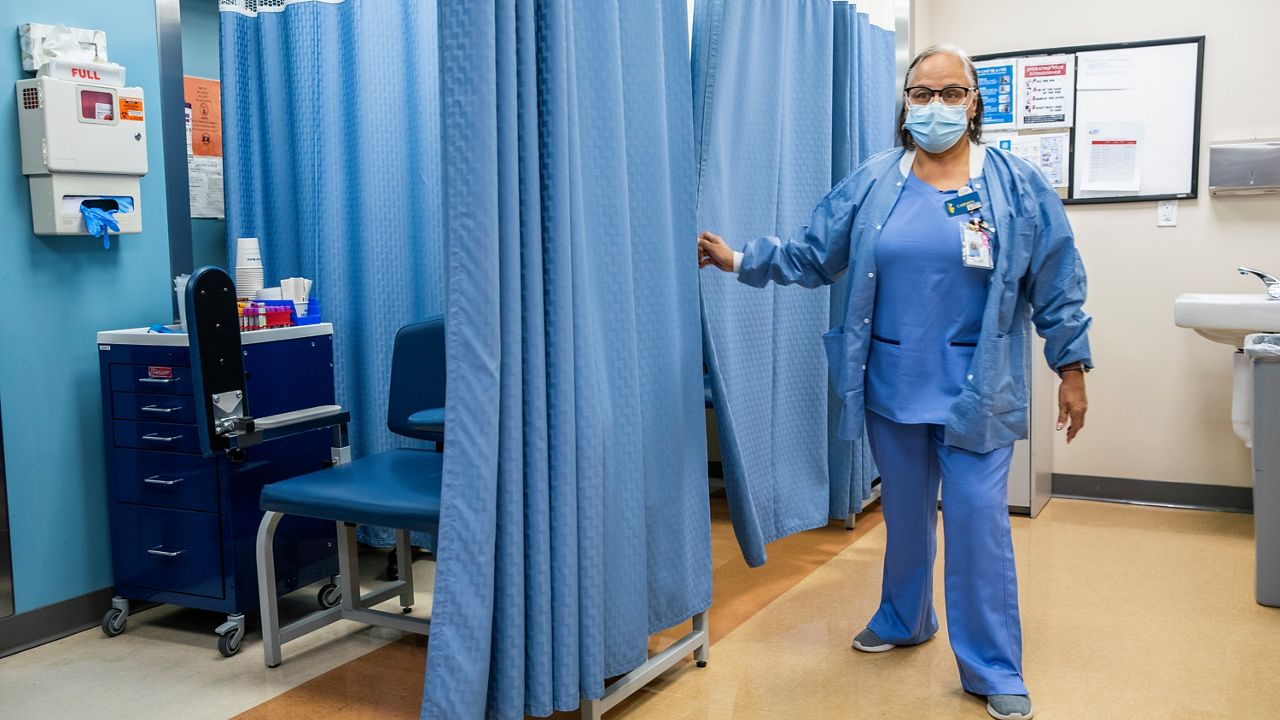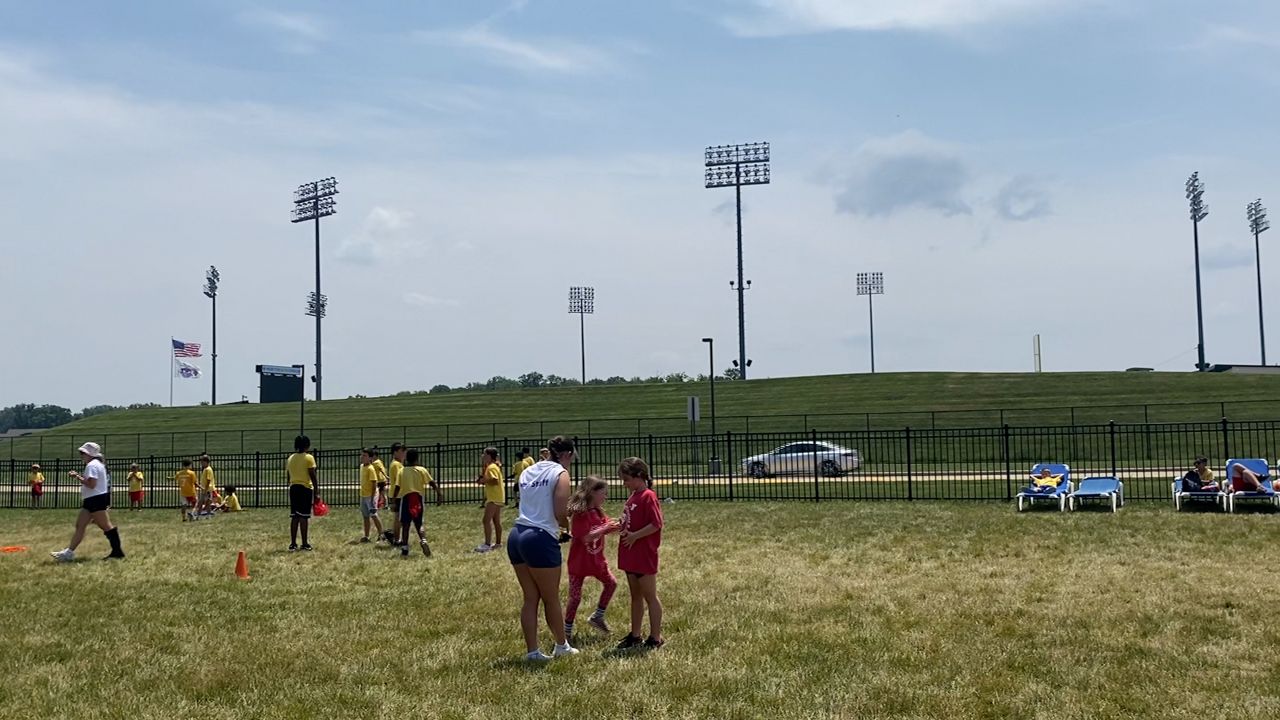CINCINNATI – The operator of Hamilton County's bus system aims to hire 50-75 new drivers to help overcome a months-long staffing shortage that's affected their ability to implement planned service expansions.
What You Need To Know
- SORTA aims to hire 50-75 drivers for Metro bus routes
- A months-long staffing shortage has affected services during the pandemic
- SORTA just signed a new, three-year contract with the driver union to enhance pay and benefits for bus operators
- The job fair is Saturday, Jan. 22 on Bank Street
The Southwest Ohio Regional Transit Authority (SORTA) will host a career fair Saturday, Jan. 22, from 10 a.m. to 1 p.m. at their Queensgate Division at 1401 Bank St.
SORTA operates Metro, the region's fixed-route bus service. The system serves Hamilton County residents but also offers commuter routes from Clermont, Butler and Warren counties into Cincinnati.
All told, Metro provides about 14 million bus rides per year.
SORTA aims to hire for a variety of positions, but they’re most in need of bus (or coach) operators.
Drivers don’t need previous experience; they’ll get paid to go through the necessary training. Pay during the training period is $19 per hour, which includes CDL training and reimbursement for CDL licensing fees. Once trained, a driver’s pay goes up $21 per hour to start.
Other payment perks include:
- Opportunities to earn premium pay rates on high-demand routes
- $2,000 signing bonus upon completion of training and 95-day probationary period
- Pay increases every six months
Metro also provides comprehensive health and dental benefits, retirement benefits and discounted transportation passes for a spouse and dependents.
Driver shortage in Hamilton County and beyond
Like many industries, transportation providers have struggled with staffing issues since the beginning of the COVID-19 pandemic. SORTA said Metro has experienced a "profound and persistent driver shortage” over much of the past two years. Areas, like Butler County and other cities in Ohio, have faced challenges finding drivers for both school and public buses.
"We're in dire need of operators. We're really short operators," said Troy Miller, president and business agent for Amalgamated Transit Union (ATU) Local 627, the labor union representing the Metro drivers.
"This is not just here. It's across the country. And I'll say this: We're fortunate, here in Cincinnati, because we haven't had to cut service yet due to not having enough operators. We haven't done that yet, but we're still really short on operators."
The local shortage, SORTA said, has played a role in limiting their ability to implement various service improvements as part of the Reinventing Metro plan, which aims to better connect greater Cincinnati residents to jobs, school and medical services.
Last summer, SORTA had a well-publicized dispute with Cincinnati Public Schools over the decision to cancel special school-centric routes called XTRA routes. SORTA, which stated the decision was initially "mutually agreed upon," said the service changes were partially rooted in the fact they're short on drivers right now.
In December, the bus service implemented what it called "improvements" on 22 fixed routes. These primarily involved trip consolidations on some express routes as well as "minor adjustments" to routes serving students, SORTA said at the time. They also eliminated an express route to Forest Park and modified service on another route, Rt. 20, to accommodate those impacted by the canceled route.
SORTA has been in the middle of an aggressive hiring campaign for the last several months.
“Because of the nationwide driver shortage, we've had to make adjustments to our current service in an effort to improve service reliability for our customers,” said Brandy Jones with SORTA. “We've also been very strategic about the timing of and which service improvements to implement based on factors that include staffing levels and ridership patterns and needs.”
As of Thursday, there were 475 Metro bus operators. Jones noted that the number can fluctuate because of several factors ranging from retirements to prolonged sick leave to employees deciding to resign for personal reasons.
Miller said the driver numbers have been affected by COVID, adding that they've had their fair share out sick over the months. But the major issue is finding people who have the right fit for the job. Working unique shift times and having a potentially evolving work schedule "isn't for everybody," he said. "It's just not their lifestyle. It's not what they used to."
New deal hopes to attract new drivers
Earlier this month, SORTA reached a new, three-year deal with the ATU Local 627. SORTA said the new agreement will mean higher rates of pay, increased benefits and better work-life balance for Metro’s union-member staff, including bus operators and maintenance workers.
For instance, under the old contract, drivers in training would get $18 per hour and then about $19.50 per hour when they started driving full-time.
Among the contract’s highlights are:
- 2.5% wage increases every six months, retroactive to January 2021
- Increased starting wage
- Yearly increases in top earning wages for operators and mechanics, reaching $32.39 per hour and $34.33 per hour, respectively, by contract’s end
- New “premium pay” structure for operators running high-ridership routes to ensure more reliable service for the most customers
- More stable shift times, which will also aid in recruiting and retaining talent
The new agreement marks the largest contractual pay increase in Metro’s history, per SORTA.
Miller said he said being a bus operator is a great job and he hopes the new pay scale helps lure some future drivers to the job fair.
"We really need them," he said. "We need to get them out on the road and serving the public. We need to keep these buses out on the road."
Those interested in taking part do not need to RSVP. But they are encouraged to submit an application at go-metro.com/careers prior to attending, if possible.









